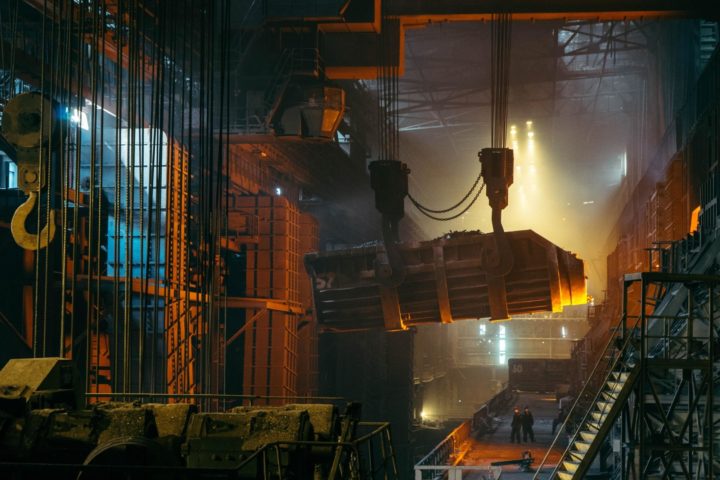Report: UK is falling behind Europe in clean steel race
UK is falling behind other European countries in the race to decarbonise the steel industry, finds new report
By George Smeeton
info@eciu.netShare
The UK is falling behind other European countries in the race to decarbonise the steel industry, finds a new report.

The study, by the Energy and Climate Intelligence Unit (ECIU), finds that there are 23 hydrogen-based steel production projects, the likely long-term successor to using coking coal, either planned or underway across the European Union. In the UK, however, there are no concrete plans for using hydrogen to produce primary steel, and only very vague proposals for one carbon capture-based project.
Commenting, Dr Jonathan Marshall, ECIU Head of Analysis, said: “This stark illustration of just how far and fast the UK is falling behind in the race to green steel should be a wakeup call both to ministers and the communities reliant on jobs in the steel sector.
“Long investment cycles mean that cutting emissions in hard-to-decarbonise sectors must be underway now. This is essential not only if we are to hit climate targets, but also if the UK is serious about creating jobs and industries that are fit for the future.
“The UK has enviable resources to produce clean hydrogen from renewable energy, using this to underpin a clean steel industry will bring vast economic benefits across the country.
“EU nations are clearly seeing the opportunities presented by decarbonising their steel sectors; the UK needs to recognise that this is a competitive global market, so sticking with the status quo, or worse, arguing that the sector will remain reliant on coking coal, just doesn’t cut it.”
Switching to hydrogen-based production is widely believed to be the optimal route to decarbonising steel.
Primary steel production is highly carbon intensive, with steel the UK’s largest industrial emitter; for the UK to achieve its emissions targets, Climate Change Committee (CCC) modelling shows that the sector will need to be decarbonised within 15 years, with emissions needing to fall 23% on 2020 levels by 2030.
However, the UK Clean Steel Fund, introduced in 2019 with £250m of government funding to support new technologies and processes, will not begin to allocate funds until 2023, likely leaving the UK yet further behind European competitors.
By contrast, there are in total 23 hydrogen steel projects across the EU, with companies such as Germany’s Thyssenkrupp aiming to produce 50,000 tonnes of climate neutral steel per year by 2022, and ArcelorMittal targeting the delivery of 600,000 tonnes of green steel by the same date. Underpinning some of the most ambitious hydrogen steel projects is Germany’s recently released hydrogen strategy, which is backed by €9bn in funding, aiming for the use of green hydrogen and supported by plans for a dedicated pipeline network.
Falling behind EU European competitors is also a major employment risk, with the UK steel industry providing direct jobs for more than 33,700 workers, a number that more than doubles when employment in supply chains is included. The sector also contributes £2.1 billion per year (GVA) towards the UK economy, a figure that jumps to £4.8bn when supply chains are included.
The report, Stuck on the starting line: how the UK is falling behind Europe in the race to clean steel, is available here.